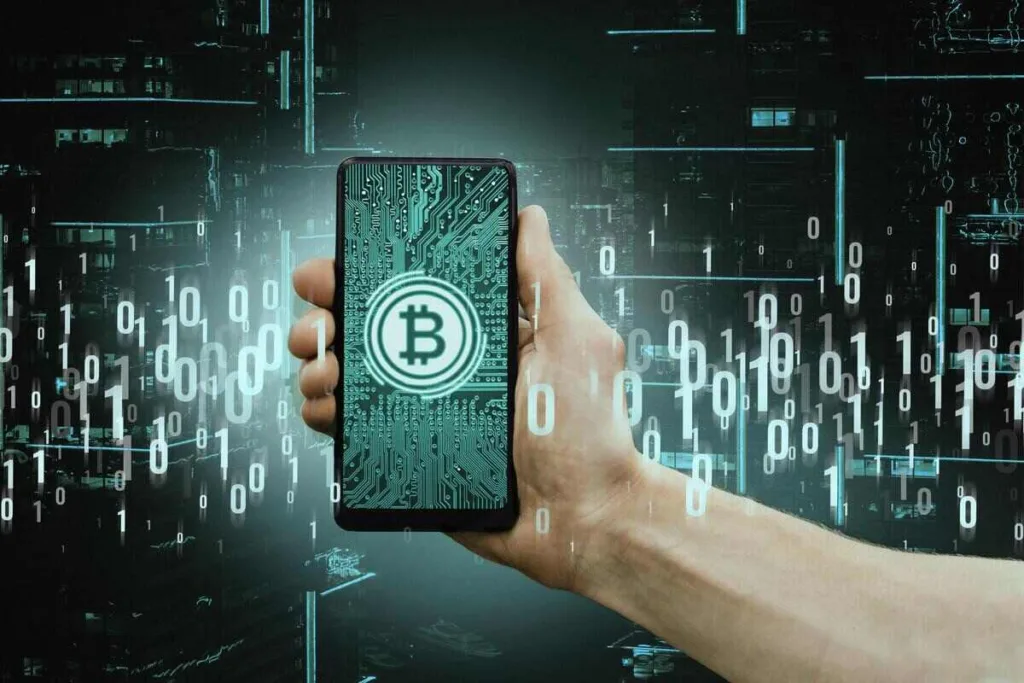The financial world is rapidly changing as blockchain technology reshapes how people move money across borders. Unlike traditional systems that often involve delays, blockchain streamlines the process, making money transfer faster and more secure. By using a decentralized network, it reduces the need for intermediaries and creates a transparent record of every transaction. This gives individuals and businesses more confidence when they send money locally or across different countries.
For international money transfer, blockchain holds the potential to remove barriers that once slowed cross-border payments. Instead of waiting for traditional approvals, funds can move directly between sender and receiver with greater efficiency. This shift not only improves how people send money but also makes global transactions more accessible to anyone who needs to move funds quickly and reliably. As blockchain adoption grows, it is becoming a powerful tool for building the future of seamless and trusted money transfer.

Transforming How We Send Money Across Borders
Sending money has always been an essential part of connecting people, families, and businesses across the world. Traditional systems, however, often come with delays, high complexity, and limited access in certain regions. These challenges make international money transfer less seamless, creating uncertainty for those who depend on reliable ways to send money. With the growth of digital solutions, a new era is beginning to reshape how people experience global payments.
Blockchain technology is at the heart of this transformation. By creating a secure and transparent digital ledger, it allows transactions to be validated quickly and recorded permanently, reducing the need for multiple intermediaries. This innovation introduces faster settlement times, greater reliability, and improved accessibility for individuals and businesses alike. As the following sections highlight, understanding the challenges, the mechanics, and the real-world applications of blockchain in money transfer reveals why it is becoming such an important tool for global financial connections.
The Challenges in Traditional Money Transfer
Before understanding how innovation is changing the way we send money, it is important to recognize the hurdles of traditional methods. Conventional systems often involve multiple steps and intermediaries, which can make international money transfer slower and less transparent. People who rely on these methods may experience delays or uncertainty when sending money across borders.
These barriers can also limit access for communities where modern banking is harder to reach, restricting opportunities for seamless financial participation. As a result, international money transfer has not always been as smooth as it should be. The rise of blockchain technology is now creating a faster and more transparent way to send money worldwide, helping individuals and businesses connect more easily in today’s global economy.
Blockchain and Money Transfer Explained
Blockchain works as a shared digital ledger that records transactions across a network of computers instead of relying on a single central system. Each transaction is securely added to the ledger in a way that cannot be altered, which makes the process both transparent and reliable. This structure allows people to exchange value directly with one another, supporting a peer-to-peer system that can be applied to money transfer without the need for multiple intermediaries.
For international money transfer, blockchain offers a practical solution to challenges often faced in cross-border transactions. When someone wants to send money, the details of that transfer are broadcast across the network. Participants validate and confirm the transaction, after which it is permanently added to the chain of records. The result is faster settlement times, enhanced security, and greater transparency. These qualities make blockchain an important tool for reshaping how people send money, both locally and internationally, with efficiency and trust.
Blockchain in Action for Money Transfer
Blockchain is changing how people send money by making transactions faster, more secure, and more transparent. In international money transfer, this technology eliminates unnecessary middle steps that often cause delays. As a result, individuals and businesses can send money across borders with greater efficiency and control. Every transaction is recorded on a digital ledger, giving both senders and receivers full visibility and confidence in their transfers.
Here are the key benefits blockchain brings to money transfer:
- Faster settlement of transactions across borders
- Increased transparency through a secure digital ledger
- Greater efficiency by reducing multiple intermediaries
- Enhanced security and reliability for global payments
Beyond speed and security, blockchain also supports financial inclusion by offering safe solutions for people in areas with limited banking access. This means more communities can participate in the global economy through reliable ways to send and receive international money transfers. While challenges such as regulations and scalability are still being refined, blockchain continues to show strong potential for reshaping how global payments operate. With ongoing innovation, the technology is expected to expand its role in connecting people worldwide. Its growth will likely create more accessible opportunities for individuals, families, and businesses to move money across borders with confidence.
11.9 Obligations to File Suspicious Activity Reports (SARs) under FinCEN
Order Express, Inc. (OEI), as a registered Money Services Business (MSB), is required to file Suspicious Activity Reports (SARs) with the Financial Crimes Enforcement Network (FinCEN) through the BSA E-Filing System.
SARs must be filed no later than 30 calendar days after the initial detection of facts that may constitute suspicious activity. If no suspect is identified, the deadline may be extended up to 60 calendar days.
Employees and agents must promptly escalate any transaction that appears suspicious, including transactions designed to evade reporting thresholds, transactions with no apparent lawful purpose, or those involving funds suspected to be derived from illegal activity, to the Compliance Department for review.
All SAR filings and supporting documentation must be retained for five (5) years in accordance with FinCEN regulations. Failure to comply with SAR obligations may result in civil and criminal penalties.
Disclaimer on Cryptocurrency and Blockchain Transactions
Order Express, Inc. does not currently engage in cryptocurrency or blockchain-based transfers. However, employees and agents should be aware that such activities may be subject to additional state-level money transmitter licensing laws and regulatory requirements beyond federal BSA/AML obligations.
Accordingly, if OEI were to consider offering cryptocurrency or blockchain services in the future, the Compliance Department will evaluate and implement all applicable federal and state requirements prior to launch. Until such compliance measures are established, agents and employees are prohibited from processing cryptocurrency transactions on behalf of OEI.

Why Blockchain is Transforming Money Transfer Worldwide
Money transfer is at the core of global connectivity, allowing individuals and businesses to send money across borders with greater efficiency. As traditional systems often face challenges such as delays and limited accessibility, blockchain technology introduces a smarter, faster, and more secure way to manage international money transfer. By relying on decentralization, cryptography, and real-time processing, blockchain is reshaping the way people send money, making the process more reliable and inclusive for everyone.
What makes blockchain stand out is its ability to address common barriers in sending money internationally. From strengthening security with immutable records to ensuring availability and reducing unnecessary steps, blockchain empowers individuals and businesses to connect financially without friction. Whether it is supporting families abroad, enabling cross-border trade, or ensuring secure global transactions, blockchain is paving the way for a new era of international money transfer solutions that are accessible, transparent, and efficient.
The Power of Decentralization in Money Transfer
Decentralization allows people to send money directly from one individual to another without depending on traditional banks or financial intermediaries. This creates a more efficient peer-to-peer system that speeds up international money transfer while maintaining security and transparency. By removing unnecessary steps, the process becomes more straightforward, giving individuals greater control when they send money across borders.
Another advantage of decentralization is its accessibility. Since it does not rely on conventional banking infrastructure, it can reach areas where financial services are limited or difficult to access. This opens new opportunities for underbanked communities, making international money transfer more inclusive and reliable. With technology making direct transfers possible, people everywhere gain a stronger connection to the global financial system.
Enhanced Security in Money Transfer
Blockchain technology is changing the way people send money by adding stronger security to every step of the process. Each transaction is recorded on a distributed ledger, creating a permanent and tamper-proof history. Once a money transfer is completed, it cannot be changed without leaving a visible trace. This level of transparency builds trust and allows both local and international money transfer to be tracked in real time.
The strength of blockchain also comes from advanced encryption methods that protect sensitive details. By using cryptography, every transfer remains secure from start to finish, even when sending money across borders. This means individuals and businesses can send money confidently, knowing their data and funds are safeguarded. Key security benefits include:
- Immutable records that cannot be altered once confirmed
- Real-time visibility of each transaction on the ledger
- Advanced cryptography to protect personal and financial details
- Strong safeguards for both domestic and international money transfer
For people with limited access to traditional banking, blockchain provides a secure and transparent way to participate in global payments. It gives underbanked communities reliable options to send money or receive international money transfer without depending on complicated systems. This added level of protection not only makes blockchain a safer choice but also encourages financial inclusion. As adoption grows, it is expected to reshape trust in digital transactions worldwide. By providing both security and accessibility, blockchain creates lasting confidence in the future of money transfer.
Compliance Note
Order Express blockchain-enabled transfers remain subject to U.S. Bank Secrecy Act (BSA) and Know-Your-Customer (KYC) rules.
- For any single or aggregated transfer of US $3,000 or more, we must collect and transmit sender & recipient names, addresses and valid government ID in line with the Travel Rule (31 CFR §1010.410).
- All transactions are screened against Office of Foreign Assets Control (OFAC) sanction lists.
- Order Express prohibits structuring or any attempt to evade these requirements.
Faster Money Transfer with Real-Time Verification
Blockchain technology makes it possible to complete a money transfer in a fraction of the time compared to traditional systems. Instead of waiting days for international money transfer approvals, blockchain enables transactions to be verified and processed almost instantly. This real-time capability offers greater confidence to anyone who needs to send money quickly, whether locally or across borders.
Another benefit is the flexibility of availability. Blockchain networks operate around the clock, meaning transfers are not limited by standard banking hours. This continuous access empowers people to send money whenever it is needed, making international money transfer smoother and more reliable. The combination of faster verification and operation shows how blockchain supports a more efficient and dependable way to move funds worldwide.
Reduced Costs in Money Transfer
Blockchain technology is creating new opportunities to make money transfer more affordable and efficient. Traditional systems often require several intermediaries, which can add extra steps and increase expenses. By simplifying the process and reducing these layers, blockchain allows international money transfer to be more direct, giving people and businesses a faster and cost-effective way to send money across borders. This makes global payments smoother and more accessible to everyone.
Here is a clear cost comparison:
Traditional Money Transfer
- Involves several intermediaries
- Processing and service charges are common
- Settlement times can extend with added costs
- Cross-border transfers may require additional steps
Blockchain Money Transfer
- Streamlined with fewer intermediaries
- Lower operational and processing expenses
- Faster settlement with minimal extra charges
- More affordable international transfers for individuals and businesses
Beyond reducing costs, blockchain also brings greater efficiency to the entire transfer process. Transactions are handled more quickly, making it easier for families, workers, and companies to send money with confidence. By combining affordability with speed, blockchain strengthens trust in international money transfer and offers a forward-looking solution for global financial connections.
Use Cases of Blockchain in Money Transfer
Blockchain is creating new possibilities for individuals and businesses to send money with more speed, security, and confidence. It is especially valuable in cross-border remittances, helping families receive international money transfer more efficiently. Businesses also gain advantages from the transparency of blockchain, which supports smooth global transactions and stronger supply chain operations. Beyond that, cryptocurrency transfers highlight blockchain’s role as the foundation for moving digital assets directly between parties without unnecessary delays.
Even with these advantages, there are still factors to consider when using blockchain for money transfer. Some systems are working to expand their capacity to handle larger transaction volumes, and digital assets used for transfers can sometimes experience value changes. In addition, regulations continue to evolve across different regions, requiring users to stay updated on compliance. These challenges highlight that blockchain is not a perfect solution yet, but progress continues to make it stronger. Over time, the technology is expected to enhance accessibility, build more trust in international money transfer, and provide people everywhere with reliable ways to send money across borders.
Note: Order Express does not process payments for unlawful internet gambling or other prohibited activities.
Privacy: Customer information collected for compliance is protected under Order Express’s Gramm-Leach-Bliley Act Privacy Policy and is only shared as permitted by law.
Conclusion
Blockchain is reshaping the way people send and receive money worldwide. By providing faster transactions, lower costs, and stronger security, it offers practical solutions for both individuals and businesses. Unlike traditional systems with delays and added expenses, blockchain simplifies international money transfer, creating a more inclusive and transparent financial environment. Families can send money abroad with greater confidence, and companies can manage global payments more efficiently. While challenges such as regulations and scalability remain, ongoing innovation continues to strengthen its potential. With each advancement, blockchain moves closer to becoming the foundation of future money transfer solutions.
Customer Rights & Error Resolution
Washington State Refund Disclosure
For customers who reside in or send money from Washington State:
If you request a refund in writing, Order Express will return all funds you paid within ten (10) calendar days, unless the money has already been delivered, committed to the recipient, or we are otherwise barred by law (RCW 19.230.330).
Your Protections:
- Pre-payment & receipt disclosures: you will always see the exact amount, exchange rate, taxes and fees before you pay, then again on your receipt, per CFPB Remittance Transfer Rule.
- Error resolution: if you think there’s a problem, contact Customer Service 888-666-1602 or Compliance 312-235-5219 within 180 days so we can investigate and correct it.
- Cancellation: you may cancel within 30 minutes of payment for a full refund if funds haven’t been picked up.
FAQs
What is blockchain in money transfer?
Blockchain is a digital ledger that records transactions securely and transparently across a network.
How does blockchain make international money transfer faster?
It removes intermediaries, allowing funds to move directly between sender and receiver in near real-time.
Is blockchain money transfer secure?
Yes, advanced cryptography and immutable records ensure transactions remain safe and tamper-proof.
Does blockchain reduce the cost of sending money?
Yes, fewer intermediaries lower processing expenses, making cross-border transfers more affordable.
Can blockchain help people without bank accounts?
Yes, it provides access to secure money transfer options for underbanked communities worldwide.




